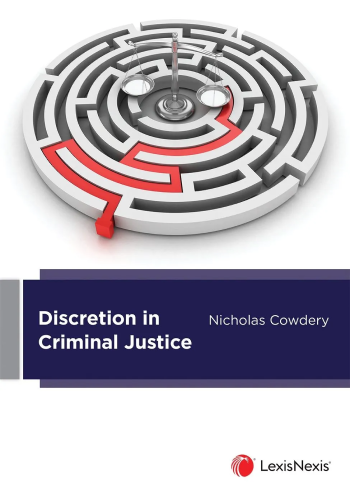We are now closed for the Christmas and New Year period, reopening on Friday 3rd January 2025. Orders placed during this time will be processed upon our return on 3rd January.

Discretion in Criminal Justice explores the stages of the criminal justice process at which discretion is exercised, discusses the limitations on that exercise and identifies available options for review.
The text discusses how and why discretion is applied at each stage (investigation, prosecution, defence, adjudication, sentencing and corrections) and also includes chapters that comprehensively survey the exercise of discretion in regard to bail, juries and appeals.
Drawing on the author’s extensive and longstanding involvement in criminal justice, including as Director of Public Prosecutions for New South Wales for over 16 years, the text provides an essential practical guide to both students and practitioners as to the principles to be applied and sources of information to assist in decision-making. It will also inform members of the public who may wish to know why and how such decisions are made.
This important practical guide for students and practitioners examines the case law, legislation, practice rules and international legal obligations that are applicable and relevant to the criminal justice decision-making process. It also provides lengthy treatment of the historical development of relevant principles to give some context to the present exercise of discretion in those aspects.
Key Features: